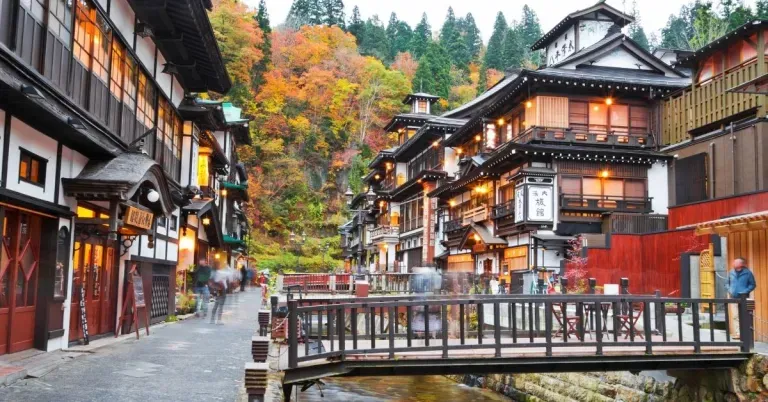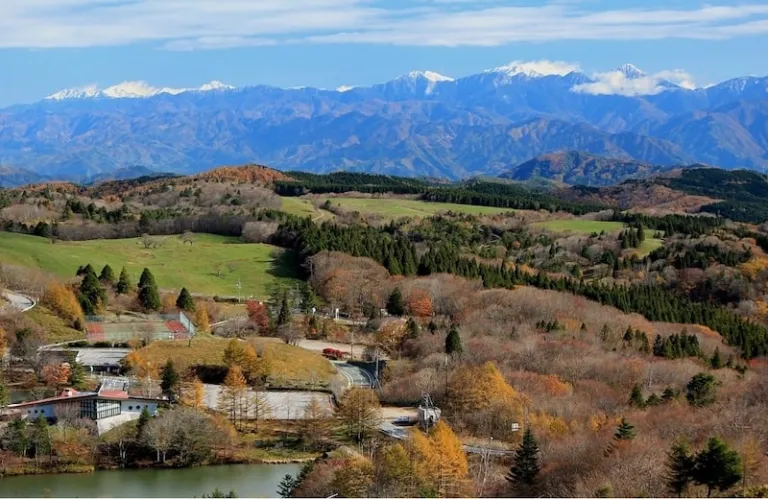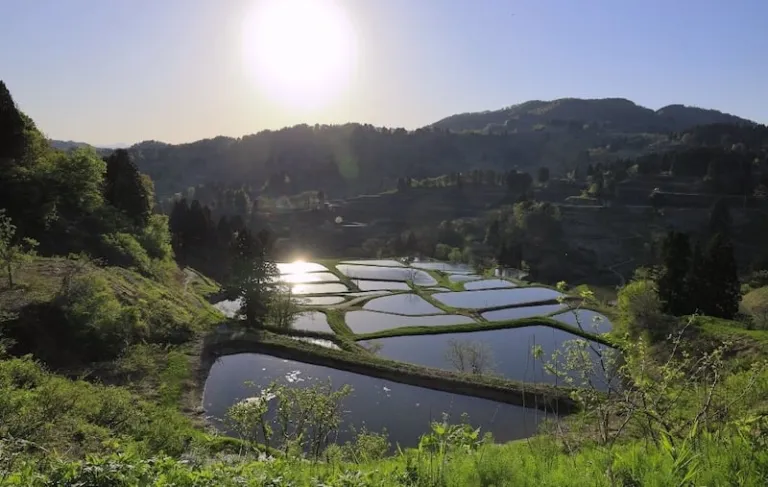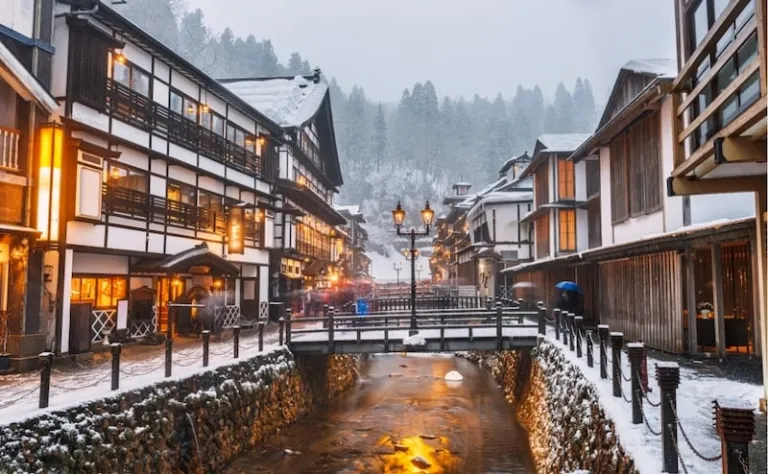Our favourite places to stay on this sleepy Cebu island.
Traditional Towns & Villages in Japan That You Absolutely Have to Visit

For most travellers (especially first-timers) visiting the Land of the Rising Sun, the focus is often on exciting cities like Tokyo and Osaka. While there’s no denying that these are iconic destinations, the idyllic towns and are also worth exploring. More than just a change of scenery and pace, these also allow you to experience a different side of Japan — with fewer crowds!
Even in peak seasons, these hidden gems can certainly make you feel like you have the place all to yourself. Some are easily accessible, while others take a bit more effort to get to; some you can visit on a day trip from a major city, while others are best for staying at longer. Here, we’ve gathered up the best villages and that prove that under-the-radar spots are anything but boring.
Note: This list of places in rural Japan only scratches the surface. At the end of the day, you’ll likely find yourself discovering more unique destinations to add to your future itinerary. But hey, that’s a rather good problem to have, isn’t it?
Also read: Rising Japanese YouTubers that English-Speaking Japan Fans Should Follow
Most beautiful
1. Shirakawa-go, Gifu

Let’s begin with Shirakawa-go — considered the most beautiful among all the ! Dotting its fields are 60 whimsical traditional houses built in an architectural style called gassho-zukuri. This translates to “hands clasped in prayer,” in reference to the steep roofs made of dried grass. Some of these centuries-old huts have now been repurposed into museums, cafes, and guest houses for tourists, while the rest serve as private property!
Shirakawa-go is also quite the splendid winter wonderland. Should you be visiting in January and February, don’t miss the special nighttime illumination sessions. Watch these gassho-zukuri houses come alive with fairy lights against a backdrop of silver snow.
Also read: Snow In Japan Is Absolutely Magical: Here Are the Destinations to Prove It!
2. Toyone-mura, Aichi

Located at the foot of the Southern Alps, Toyone-mura is one of Japan’s snow villages worth visiting. It’s also home to Chausuyama Plateau, aka the only ski area in Aichi. Aside from skiing, it’s also perfect for other adrenaline-filled adventures like sledding, snowboarding, and mountain biking! (The latter is for warmer months, of course.)
Speaking of other seasons, this hidden gem in rural Japan also has the earliest autumn foliage in the prefecture. Come late spring, there’s the annual Shibazakura Festival, where you’ll see fields carpeted in these vibrant pink flowers.
Also read: Exploring the Asian Alps: 7 Countries to Visit For An Awesome Alpine Vacation
3. Yamakoshi-mura, Niigata

Yamakoshi-mura is another idyllic place for a glimpse of the Japanese countryside. It boasts breathtaking views of rice paddy fields, pine forests, and koi ponds so exquisite that they belong in a painting. It’s almost hard to believe that this village was struck by a massive earthquake in 2004, which you can learn more about at the Orataru Cultural Centre.
Enjoy interacting with adorable animals? We recommend visiting Yamakoshi Yubu Alpaca Farm. The original alpacas were from an American donor, who gave these as a gift for the locals to lift their spirits after that said earthquake. Admission to the farm is free, though you might wanna leave a donation to support these fluffy critters.
Small towns in Japan that you should explore
4. Biei, Hokkaido

It’s easy to see why Biei is among the more popular towns in rural Japan. Featuring a lush hilly landscape and a vast patchwork of seasonal blooms, it’s the quintessential floral scenery that Hokkaido is known for. For a complete countryside experience, you might wanna rent a bicycle to explore the area!
Make sure to visit the town’s crowning glory: Shikisai No Oka, whose name translates to “Four Seasons Hill.” From April to October, you can enjoy the sight of various blossoms like tulips, lavender, sunflowers, Japanese anemones, and more! Other must-visit natural attractions include Patchwork Road, Panorama Road, and the nearby Blue Pond.
Also read: 17 Unique Experiences to Add to Your Hokkaido Itinerary
5. Kurashiki, Okayama

While not exactly a small town, the city of Kurashiki has a historic area that dates back to the Edo Period. This is called the Bikan Historical Quarter, where canals cut between the streets brimming with weeping willows and white-walled kominka (traditional houses). Fun fact: Kurashiki roughly translates to “town of storehouses,” in reference to these kominka that were formerly rice storehouses.
Nowadays, these picturesque structures serve as cafes, boutiques, souvenir shops, and museums. Kurashiki is also one of those old towns in Japan that feel calm and relaxing, even during the busy holiday season. Taking a boat ride to explore the place is certainly a must-do!
6. Hakone, Kanagawa

Few things feel more invigorating than enjoying mountain views while on vacation. When small towns in Japan, surely a view of Mount Fuji ought to be part of your bucket list. For this, we recommend Hakone, situated inside Fuji-Hakone-Izu National Park and just about a two-hour drive from Tokyo.
This misty mountain town sits at the base of Mount Hakone, a volcano whose eruption from centuries ago formed the now-famous Lake Ashinoko. Apart from this, Hakone is known for its onsen (hot springs), temples, castles, and open-air museums. You can also go on sightseeing tours aboard a gondola lift, train, and pirate ship — how cool is that?
7. Ginzan Onsen, Yamagata

Speaking of secluded hot spring towns in Japan, another excellent pick would be Ginzan Onsen. Its name translates to “silver mountain hot spring,” as it used to be the site of a silver mine. Filled with ryokan (traditional inns) and other Taisho-period structures, it offers a serene atmosphere where time seems to slow down.
It’s especially popular during wintertime, where both locals and foreigners flock to witness the dazzling snowscape amid a quaint light-filled village. It’s quite the quintessential scenery reminiscent of a Studio Ghibli film. If this sounds like your cup of tea, you might wanna book at least six months in advance. Ginzan Onsen is rather small with a limited number of ryokan!
Also read: A Guide to Staying at A Japanese Ryokan: The Dos and Don’ts
8. Shodoshima, Kagawa

Did you know that there’s an island town in Japan with a Mediterranean climate? On Shodoshima, one can expect pristine golden beaches, bountiful olive groves, fishing villages, and even white windmills. It’s popular among locals as the filming location of the 1954 Japanese classic, Twenty-Four Eyes.
It’s nicknamed the Island of Small Beans, which originally pertains to adzuki beans. Although today, it more fittingly refers to Shodoshima’s top exports: olive and traditionally made soy sauce. Another must-try culinary staple would be Shodoshima soumen, a special type of soup dish where the thread-like wheat noodles are meticulously hand-stretched and sun-dried to give it a glutinous texture.
Also read: 10 Must-Visit Prefectures in Japan That Are Waiting for You to Discover Them
So, which of these small towns and would you love to visit first? It’s never too early to get started on planning your trip — especially now that the country is getting closer to reopening to foreign tourists!
In the meantime, you might wanna brush up on these essential phrases that’ll come in handy when venturing into the Japanese countryside.
Featured image credit: thanyarat07 | Canva Pro. This article was originally published on TripZilla.
Published at
About Author
Marcy Miniano
Subscribe our Newsletter
Get our weekly tips and travel news!
Recommended Articles
10 Bantayan Island Resorts, Hotels, and Rentals for Your Tropical Escape 10 Best Mountain Cafes in the Philippines for Your Peak Coffee Experience Coffee date on the mountains, anyone?
10 Fairytale Castles In Europe Filipinos Need To See! Permission to feel like royalty even for a day?!
10 Instagrammable Laguna Restaurants and Cafes You’ll Love Elevate your Insta-game at these Laguna spots.
10 Pristine Beaches in Batangas for a Relaxing Tropical Break All within arm’s reach of Manila!
Latest Articles
Dingalan Travel Guide: Nature Spots to Discover Now Underrated coastal gem in Aurora
What to Eat in Bicol: Iconic Dishes and Treats, and Unique Pasalubong You’ll Love Spice up your foodie adventure with iconic Bicol dishes and must-try pasalubong!
Top Travel Trends in the Philippines for 2025 New spots, tips, and trends
New UK Adventure Park to Visit in Devon and Cornwall Fun countryside escape near London
Ultimate Camarines Norte Travel Guide: Waterfalls, Beaches, and More From surfing to secret waterfalls, Camarines Norte is your next escape!

